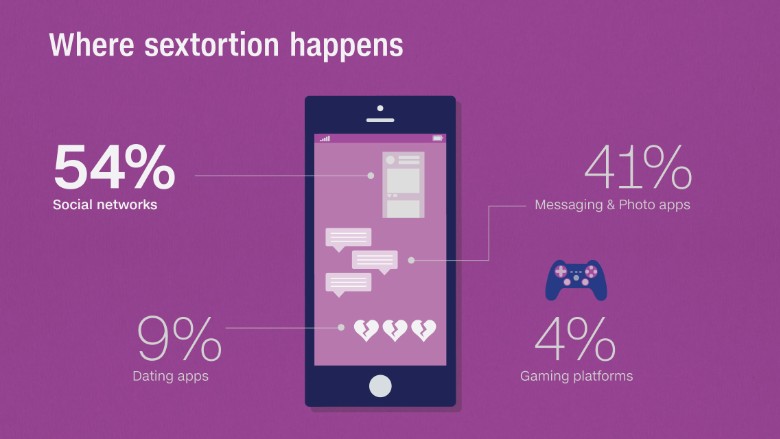Kijun Times
Kijun Times 는 교내 영어잡지,신문 동아리로 다양한 주제에 관한 이슈로 원고를 작성하며 영어 잡지를 만드는 동아리입니다.
매년 잡지 출판뿐만 아니라 자신의 진로와 관련된 개인기사, 모둠기사를 작성함으로써 영어 실력향상은 물론 주제에 제한이 없기 때문에 다양한 진로에 접목 가능합니다.
We are looking for a new journalist for The KIJUN TIMES.
Anyone can be a journalist for The KIJUN TIMES.

A disturbing look inside the world of online sextortion by Laurie Segall |
|||||
|---|---|---|---|---|---|
| 이름 | 최현정 | 등록일 | 16.09.02 | 조회수 | 650 |
"He was choking a cat [on a video chat site] and told me if I didn't do as he said, he would kill the cat," a 17-year-old victim recalls.His demand: show him her breast. She did it. Then he showed her the video he had taken of her breast and said if she left the site, he'd post it to her Facebook page. This is just one story of sextortion -- a growing form of online harassment where perpetrators use personal info, often images, to extort victims into providing sexually explicit photos or videos. The anecdote is one of many included in a study released Thursday. The University of New Hampshire Crimes Against Children Research Center partnered with nonprofit Thorn to explore the growing form of online abuse. Related: Sextortion is scarily common The researchers used Facebook and Twitter ads to get respondents, targeting users ages 18 to 25. While they'd only expected 150 responses, 1,600 people answered the ads, Thorn CEO Julie Cordua said. Survey respondents detailed how they were targeted, how often threats were carried out, and the aftermath of this type of harassment. The study found that women are the primary targets, and more than half knew the perpetrator before the harassment began. Nearly half said they were under 18 when the abuse started, and one in eight said they'd fled their homes, fearing for their safety.  Thorn, which Ashton Kutcher cofounded in 2010, focuses on using tech innovation to fight the sexual exploitation of children online. Cordua said it focused on sextortion after hearing from both tech companies and law enforcement that many suicides were linked to this form of harassment. Researchers found that 54% of the victims who reported harassment were targeted on social networks, 41% on messaging and photo apps, and 9% on dating apps. Forty-five percent said they experienced sextortion on more than one platform. CNNMoney Special Report: Revenge Porn One of the troubling takeaways is that many people who experience this type of harassment never tell anyone. A third of the victims who responded to the survey didn't report the incidents. Many were embarrassed to come forward due to the deeply personal nature of the harassment. Of those who did contact law enforcement, many said they had received negative or dismissive responses. They cited the lack of criminal laws addressing sextortion. Many said they reported the abuse to tech companies but were faced with complicated documentation procedures, long delays and few followups. "I think that most people don't recognize how sadistic a lot of the perpetrators appear to be," said Janis Wolak, lead researcher at the Crimes Against Children Research Center. For some of the victims who responded, the online harassment moved offline. Wolak says a number of the victims were sexually assaulted or raped by people threatening to disclose their personal images. "If you're in law enforcement or any sort of practitioner who works with victims of dating violence or domestic violence, you may find they've also been threatened with sextortion," she said. Related: What is banned on Facebook The study is meant to raise awareness of the growing problem, and encourage both law enforcement and tech companies to take action. Thorn works with 25 major tech companies as part of a task force that is raising awareness and building tech tools to combat these types of problems. In November, it launched an innovation lab in Silicon Valley to experiment with new technologies to identify and deter criminal behavior directed at children online. But while tech companies can do a better job detecting and preventing sextortion, Cordua said, there's a broader societal responsibility to begin to talk about sexual exploitation online. "One of the biggest issues is the nondisclosure," she said. "Our society doesn't want to hear it or isn't prepared to hear it." She suggested parents start having open conversations regarding these issues and create environments where children can come forward if something is happening to them online. "If you're a victim, reach out and seek help. ... If you're a parent, talk to your child. That could go a long way." |
|||||
| 이전글 | August jobs report: What you need to know by Patrick Gillespie |
|---|---|
| 다음글 | Why Leonardo DiCaprio is backing man-made diamonds by Sophie Morlin-Yron |